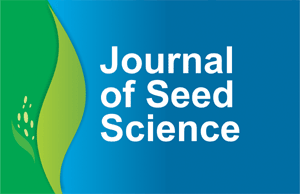Abstract:
The thermoinhibition of lettuce seed germination causes important losses for producers, who do not have thermotolerant commercial cultivars. One of the obstacles has been the scarcity of optimizing techniques capable of efficiently discriminating thermotolerant and thermosensitive cultivars. The aim of this work was to evaluate the use of neural networks to discriminate different levels of thermoinhibition in lettuce seeds. Seeds of 18 cultivars were evaluated for thermoinhibition considering the characteristics of the first and last germination count and germination speed index, in seeds subjected to temperatures of 20, 25, 30 and 35 °C. The remaining seeds, which did not germinate, were subjected to the tetrazolium test. Analyses were performed immediately after seed harvesting and repeated after six months of storage. Discriminant analysis was performed and the Kohonen’s Self-Organizing Map (SOM) was created using Artificial Neural Networks (ANNs). Neural networks discriminate lettuce cultivars and organizes them in terms of seed thermoinhibition tolerance through Kohonen’s Self-Organizing Map. Discriminant analysis consistently identifies the Everglades and Luiza genotypes as tolerant to thermoinhibition.
Index terms:
computational intelligence; harvest; Lactuca sativa L.; seed dormancy; storage

 Thumbnail
Thumbnail
 Thumbnail
Thumbnail
 Thumbnail
Thumbnail
 Thumbnail
Thumbnail
 Thumbnail
Thumbnail
 Thumbnail
Thumbnail





